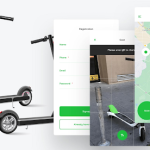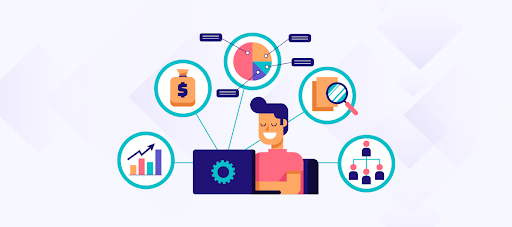In the ever-evolving landscape of technology, the convergence of artificial intelligence (AI) and DevOps has emerged as a powerful catalyst for revolutionizing business efficiency. DevOps, the innovative methodology that unifies software development and IT operations, has already trannike ispa 270 custom made basketball jerseys castelli vantaggio jersey nike dunk nfl luvme human hair wigs motagua jersey kansas city chiefs crocs custom stitched nfl jersey custom stitched nfl jersey custom sublimated hockey jerseys completini intimi molto sexy jersey mls custom basketball jerseys durex intense vibrations ring nike air force jordan sformed the way organizations create, deploy, and manage their software products. Simultaneously, AI has made remarkable strides, reshaping industries by leveraging data-driven insights and automation. The marriage of these two cutting-edge domains presents a unique opportunity to not only streamline software development processes but also to elevate business efficiency to unprecedented heights.AI plays a pivotal role in enhancing DevOps services, streamlining processes and ensuring seamless operations. When combined with data processing outsourcing, it elevates efficiency by leveraging specialized expertise for managing and analyzing data. This collaboration optimizes decision-making, accelerates development cycles, and fosters a more agile and responsive DevOps environment.
Traditionally, software development and IT operations operated in silos, leading to fragmented workflows, communication gaps, and delayed releases. DevOps emerged as a response to these challenges, promoting a collaborative approach that integrates development, testing, and operations seamlessly. This approach ushered in a new era of agility and continuous delivery, allowing organizations to respond rapidly to market demands. However, as technological demands increase and systems grow in complexity, DevOps faces its own set of challenges.
Evolution of DevOps
The software development landscape has undergone a profound transformation over the past few decades, giving rise to the DevOps methodology—a paradigm shift that has redefined the way software is conceived, developed, and delivered.
- The Traditional Silos
In the early days of software development, the process followed a linear path, with distinct phases such as planning, coding, testing, and deployment. These phases were often isolated in separate organizational silos, leading to communication gaps, lengthy handovers, and a lack of collaboration. Developers focused solely on writing code, while operations teams were tasked with managing infrastructure and deployment. This siloed approach resulted in delayed releases, increased error rates, and an inability to respond swiftly to market changes.
- The Birth of DevOps
The need for more efficient software delivery processes paved the way for the emergence of DevOps—a term coined from “development” and “operations.” DevOps sought to break down the barriers between development and operations teams by fostering a culture of collaboration and shared responsibilities. By advocating for cross-functional teams and continuous integration, DevOps aimed to accelerate the software development lifecycle and ensure the seamless delivery of high-quality products.
Core Principles of DevOps
DevOps embodies a set of guiding principles that form its foundation:
Continuous Integration (CI): Developers integrate their code into a shared repository multiple times a day. This practice enables early detection of integration issues and encourages a more cohesive codebase.
Continuous Delivery (CD): Building upon CI, CD involves automating the deployment process, allowing code changes to be reliably and rapidly pushed to production environments.
Automation: DevOps emphasizes automating repetitive tasks, reducing manual interventions, and enabling teams to focus on high-value activities.
Infrastructure as Code (IaC): Treating infrastructure as code allows for consistent, repeatable provisioning and management of infrastructure, ensuring parity between development and production environments.
Collaboration: DevOps encourages open communication and collaboration between development, operations, and other stakeholders, fostering a sense of shared ownership.
Challenges Addressed by DevOps
The DevOps methodology directly addresses the limitations of the traditional software development lifecycle. By breaking down silos and promoting continuous collaboration, DevOps minimizes handover delays and enhances the feedback loop between teams. This approach results in faster development cycles, reduced errors, and the ability to pivot in response to changing market dynamics.
While DevOps represented a significant leap forward, the growing complexity of modern software systems and the need for even greater efficiency have driven the integration of AI into DevOps practices. The next section explores how AI is transforming DevOps and propelling business efficiency to new heights.
The Rise of AI in Business Processes
The ascent of artificial intelligence (AI) has reshaped the landscape of industries across the globe, propelling businesses into a new era of efficiency and innovation. From customer service and data analysis to decision-making and automation, AI has become a cornerstone of modern business processes.
- AI-Powered Insights and Decision-Making
AI’s prowess in analyzing vast volumes of data has revolutionized decision-making. Businesses now have the capability to derive actionable insights from data points that were once insurmountable. Machine learning algorithms can uncover patterns, correlations, and trends within data, enabling organizations to make informed decisions driven by evidence rather than intuition alone. This ability to harness data-driven insights has led to optimized strategies, enhanced customer experiences, and the ability to swiftly adapt to changing market dynamics.
- Automation and Operational Efficiency
Automation, a hallmark of AI, has liberated businesses from the shackles of manual, repetitive tasks. Routine operations that previously demanded significant time and resources can now be executed seamlessly by AI-powered systems. This liberation of human resources allows employees to focus on tasks that require creativity, critical thinking, and complex problem-solving. The application of AI-driven automation has translated into streamlined workflows, reduced error rates, and increased operational efficiency.
- Enhancing Customer Experiences
In the realm of customer service, AI has transformed interactions. Chatbots equipped with natural language processing (NLP) capabilities offer customers round-the-clock support, answering inquiries, troubleshooting issues, and even making personalized recommendations. These AI-driven interactions not only ensure prompt responses but also contribute to improved customer satisfaction and loyalty.
- Predictive Analytics and Anticipating Trends
AI’s predictive capabilities have proven invaluable in anticipating future trends and behaviors. By analyzing historical data, AI algorithms can forecast potential outcomes, allowing businesses to proactively address challenges and seize opportunities. This ability to predict market trends, customer preferences, and even potential technical issues empowers organizations to stay ahead of the curve, optimize resource allocation, and make preemptive decisions.
Ethical Considerations and AI
As AI continues to integrate deeply into business processes, ethical considerations come to the forefront. The use of AI must be governed by transparency, fairness, and accountability. Bias in AI algorithms, for instance, can lead to unintended discriminatory outcomes. Striking a balance between harnessing AI’s potential and ensuring responsible deployment is a challenge that businesses must navigate.
In light of AI’s transformative impact on various business aspects, the fusion of AI and DevOps represents a logical progression. The application of AI principles within DevOps practices promises to amplify the efficiency gains achieved through both domains. The subsequent sections delve into the specific domains where AI and DevOps converge, outlining how this synergy is poised to reshape the future of software development and operational excellence.
AI in DevOps: Enhancing Efficiency
The convergence of artificial intelligence (AI) and DevOps has ushered in a new era of efficiency and optimization within software development and operational processes. By seamlessly integrating AI-driven technologies into the DevOps framework, organizations can unlock a range of benefits that revolutionize business operations.
- Automation of Repetitive Tasks
One of the key strengths of AI lies in its ability to automate repetitive and time-consuming tasks that traditionally burdened human resources. In the realm of DevOps, routine activities such as code testing, deployment, and infrastructure provisioning can be automated using AI-powered tools. This automation accelerates the software development lifecycle, reduces the likelihood of human errors, and frees up valuable human resources to focus on strategic and innovative initiatives.
- Predictive Analytics for Proactive Maintenance
AI’s predictive analytics capabilities are particularly valuable in preventing potential bottlenecks and failures. By analyzing historical data and patterns, AI algorithms can identify trends that often lead to system failures or performance issues. This predictive insight enables DevOps teams to take preemptive action, addressing vulnerabilities before they escalate into critical problems. Consequently, this approach minimizes downtime, enhances system reliability, and ensures a seamless user experience.
- Real-time Monitoring and Intelligent Alerts
AI-powered monitoring tools provide real-time insights into system performance and health. These tools continuously collect and analyze data from various sources, detecting anomalies and deviations from expected behavior. When unusual patterns arise, AI triggers alerts that enable DevOps teams to swiftly respond to potential issues, maintaining system integrity and user satisfaction. This proactive approach to monitoring enhances overall system stability and reduces the time required to troubleshoot problems.
- Root Cause Analysis and Faster Resolution
Identifying the root cause of system failures has traditionally been a complex and time-consuming task. AI-driven algorithms can expedite this process by analyzing vast datasets and identifying intricate relationships between variables. This capability significantly reduces the time required to diagnose problems, facilitating faster resolutions and minimizing the impact of incidents on business operations.
- Continuous Optimization and Learning
AI’s ability to adapt and learn from data makes it an ideal candidate for continuous optimization within DevOps. As systems evolve and user behaviors change, AI algorithms can adapt to new patterns and adjust strategies accordingly. This iterative optimization loop ensures that software delivery and operational processes remain aligned with current demands, enhancing efficiency and responsiveness over time.
- Augmented Decision-Making
By processing and analyzing large volumes of data, AI can assist DevOps teams in making informed decisions. From selecting the most suitable deployment strategies to allocating resources optimally, AI provides valuable insights that guide decision-making processes. This augmentation of human decision-making fosters better-informed choices and ultimately contributes to more efficient and effective DevOps practices.
Key Areas of AI Integration in DevOps
The synergy between artificial intelligence (AI) and DevOps manifests across several critical areas, where AI-driven enhancements are reshaping traditional practices and catapulting operational efficiency to unprecedented levels.
- Automation of Repetitive Tasks
AI’s automation capabilities are harnessed to streamline various repetitive tasks in DevOps. These include code testing, compilation, deployment, and configuration management. AI-powered bots and scripts can handle these routine processes, reducing the need for manual intervention. As a result, development and operations teams can focus on more strategic tasks, while AI ensures consistent and error-free execution of mundane activities.
- Predictive Analytics for Proactive Issue Resolution
Predictive analytics, powered by AI algorithms, enable early detection of potential bottlenecks and issues. By analyzing historical data and system behavior, AI can forecast possible points of failure. DevOps teams can then take proactive measures to mitigate risks, thereby preventing system downtime and minimizing disruptions. This predictive approach ensures smoother operations and enhances user experience.
- Intelligent Monitoring and Real-time Alerts
AI-driven monitoring systems continuously analyze system performance metrics and user behaviors. This real-time analysis allows for the swift detection of anomalies, which can be indicative of impending problems. When deviations are detected, AI triggers alerts, enabling DevOps teams to investigate and address issues promptly. This approach improves system reliability and reduces mean time to resolution (MTTR) for incidents.
- Root Cause Analysis and Incident Investigation
Pinpointing the root cause of an issue is a critical aspect of DevOps. AI employs sophisticated algorithms to analyze complex relationships within datasets, facilitating faster and more accurate root cause identification. This capability accelerates incident investigation and resolution, minimizing the impact of disruptions on business operations.
- Continuous Optimization through AI Insights
AI’s learning capabilities are leveraged for continuous optimization of DevOps processes. By analyzing performance data and user patterns, AI algorithms can recommend refinements to deployment strategies, resource allocation, and scaling mechanisms. This iterative optimization loop ensures that DevOps practices evolve in alignment with changing requirements, enhancing overall system efficiency.
The Future Landscape of AI-Driven DevOps
The synergy between artificial intelligence (AI) and DevOps has ignited a transformative journey that is poised to reshape the future of software development and operational practices. As technological advancements continue to unfold, the landscape of AI-driven DevOps holds exciting possibilities that promise to revolutionize business efficiency and innovation.
- Advanced Predictive Capabilities
The marriage of AI and DevOps is expected to yield increasingly sophisticated predictive capabilities. AI algorithms will become more adept at not only identifying potential issues but also offering nuanced insights into root causes and possible solutions. This evolution will enable organizations to move from reactive problem-solving to proactive issue prevention, resulting in unparalleled system reliability.
- Autonomous Decision-Making
As AI algorithms grow in complexity and sophistication, they are poised to take on more intricate decision-making tasks. In the DevOps context, this could mean AI systems autonomously selecting deployment strategies, optimizing resource allocation, and even recommending development methodologies based on evolving project requirements. Such autonomy will enable teams to focus on higher-level strategic planning and innovation.
- AI-Enhanced Collaboration
The future of AI-driven DevOps will see enhanced collaboration between human operators and AI systems. AI tools will serve as intelligent co-pilots, offering suggestions, insights, and recommendations during decision-making processes. This collaborative partnership will leverage the strengths of both humans and AI, resulting in better-informed choices and more efficient workflows.
- Continuous Learning and Adaptation
AI’s ability to learn from data will lead to continuous improvement in DevOps practices. As systems evolve, AI algorithms will adapt to changing patterns, improving their ability to predict issues, optimize processes, and enhance efficiency. This dynamic learning loop will ensure that DevOps practices remain aligned with the evolving demands of modern software development.
- AI for Complex Decision-Making
As AI technologies mature, they may increasingly handle complex decision-making processes that were traditionally reserved for human experts. DevOps practices could involve AI systems making decisions about software architecture, scaling strategies, and risk assessments. This shift has the potential to accelerate decision cycles and optimize outcomes based on data-driven insights.
- Expanding Domains of Application
While AI-driven DevOps is currently prevalent in software development and operations, its impact is expected to transcend these domains. Industries beyond IT, such as manufacturing, healthcare, finance, and logistics, will likely adopt AI-driven practices to enhance efficiency, quality, and innovation. This broader adoption will shape a future where AI-driven DevOps becomes a cross-industry standard.
Conclusion
The convergence of artificial intelligence (AI) and DevOps has given rise to a transformational synergy that promises to reshape the landscape of modern business. As we have explored in this article, the integration of AI within DevOps practices, known as AI in business and DevOps services, holds remarkable potential to revolutionize business efficiency, elevate software development processes, and drive innovation.
As we look to the future of AI in business and DevOps services, the landscape holds even greater promises. Advanced predictive capabilities, autonomous decision-making, and expanding domains of application underscore the transformative potential of this symbiotic relationship. By strategically navigating these challenges and embracing the opportunities within DevOps services, organizations can pave the way for a new era of operational excellence, innovation, and competitiveness.
The convergence of AI and DevOps is not just a technological advancement in DevOps services; it’s a strategic imperative that empowers businesses to adapt, innovate, and thrive in an ever-changing landscape of AI in business. By embracing this revolution within DevOps services, organizations position themselves at the forefront of business efficiency and success, prepared to navigate the complexities of the digital age while seizing the boundless opportunities it presents.











